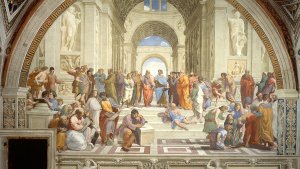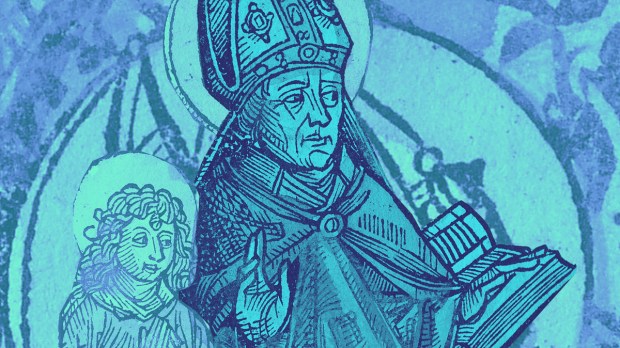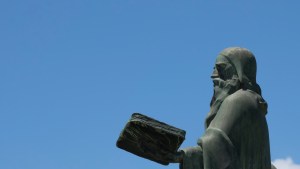As the final days of 2023 tick by, a familiar feeling comes to us. We contemplate the promises we broke, the wishes we never fulfilled, the work that is yet to be done, and the desires we hold dear in our hearts. This introspective dance around time’s passage is perhaps nowhere starker than on New Year’s Eve – a night where the irreversible weight of the past meets the unpredictable horizon of the future.
It’s on such nights that the words of St. Augustine resonate deeply. For Augustine, time is far from being a linear progression – a simple march from point A to B. He saw it instead as a distentio animi, a “distension of the mind.” In short, this distentio animi is a stretching and pulling of our consciousness between past, present, and future. This “distension,” he argued, was the very essence of our human experience, a constant interplay between memory, perception, and anticipation.
On New Year’s Eve, this Augustinian framework feels particularly poignant. We stand at a crossroads. The past year is a somewhat closed book behind us. The future, an unfurling scroll brimming with possibilities – and potential threats. We remember, with varying degrees of regret or satisfaction, the promises made and broken, the paths taken and untaken. The distension stretches, pulling us back to lessons learned and mistakes made, while simultaneously flinging us towards the unknown terrain of the year ahead.
This tension between the irreversible and the unpredictable is the very crux of our relationship with time. The past, once experienced, cannot be undone. It’s a fixed point, etched in our memories. The future remains a fantasy, perpetually out of reach, yet beckoning us forward with whispers of new beginnings.
Augustine, however, offered a glimmer of hope amidst this paradox. He, who once was the ultimate procrastinator, realized that within the distension of the mind lies the power of the present moment. It is in this fleeting sliver of time (the hac hora, the right now of time) that we can truly act, truly choose, and ultimately shape our own future. On New Year’s Eve, as the weight of the past and the uncertainty of the future press upon us, Augustine’s message holds significant weight.
Instead of being paralyzed by the irreversible or overwhelmed by the unpredictable, Augustine invites us to focus on the present to (1) acknowledge the lessons of the past, (2) release its burdens, and (3) to step into the future with open eyes and open hearts. He reminds us that within the distension of our minds lies the potential for renewal, for forgiveness, and for the courageous act of promising anew.
So, as the clock strikes midnight and the champagne corks pop, let us remember that the new year is not just a fresh start, but a continuation of the ever-expanding collection of our lives. Within this distension of time lies the very essence of who we are –and who we choose to become.



